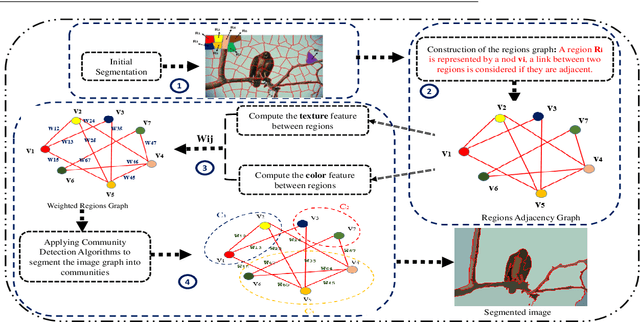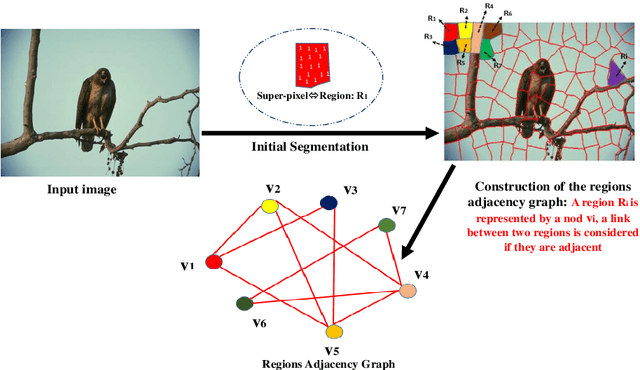A General Framework for Complex Network-Based Image Segmentation
Paper and Code
Jul 04, 2019



With the recent advances in complex networks theory, graph-based techniques for image segmentation has attracted great attention recently. In order to segment the image into meaningful connected components, this paper proposes an image segmentation general framework using complex networks based community detection algorithms. If we consider regions as communities, using community detection algorithms directly can lead to an over-segmented image. To address this problem, we start by splitting the image into small regions using an initial segmentation. The obtained regions are used for building the complex network. To produce meaningful connected components and detect homogeneous communities, some combinations of color and texture based features are employed in order to quantify the regions similarities. To sum up, the network of regions is constructed adaptively to avoid many small regions in the image, and then, community detection algorithms are applied on the resulting adaptive similarity matrix to obtain the final segmented image. Experiments are conducted on Berkeley Segmentation Dataset and four of the most influential community detection algorithms are tested. Experimental results have shown that the proposed general framework increases the segmentation performances compared to some existing methods.
 Add to Chrome
Add to Chrome Add to Firefox
Add to Firefox Add to Edge
Add to Edge